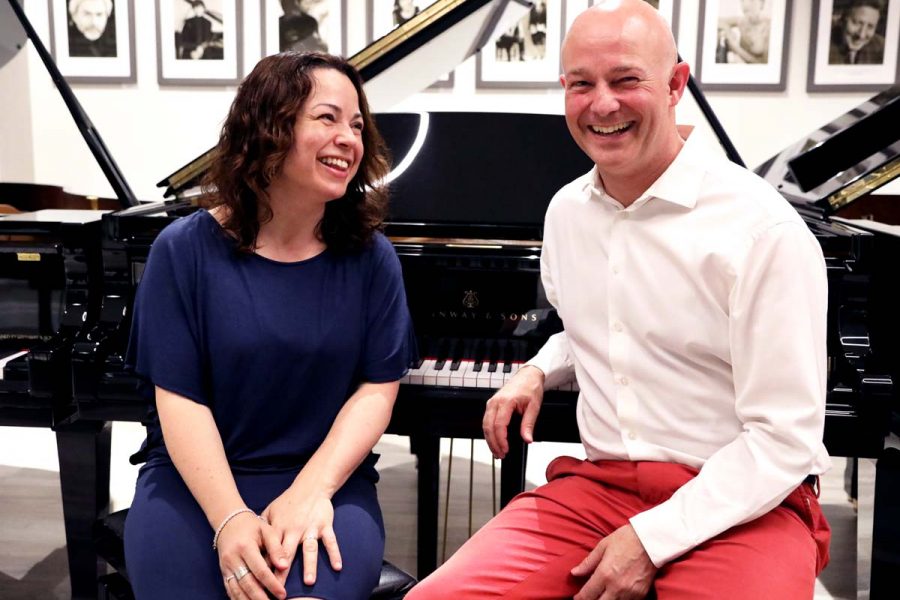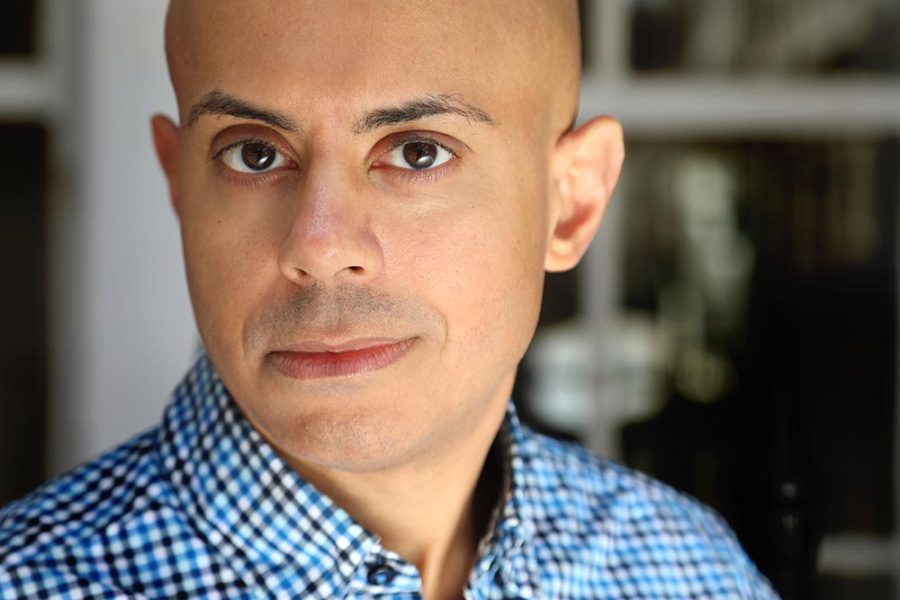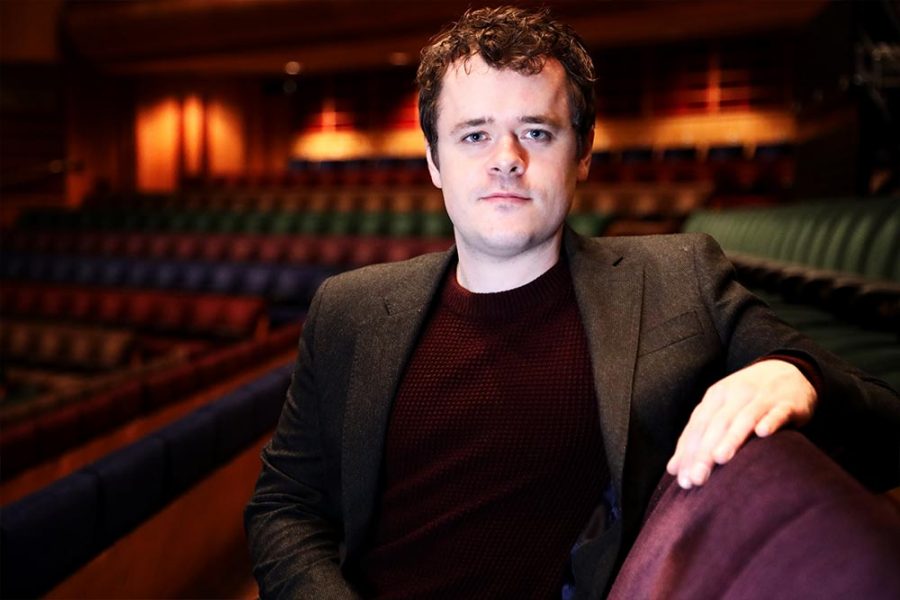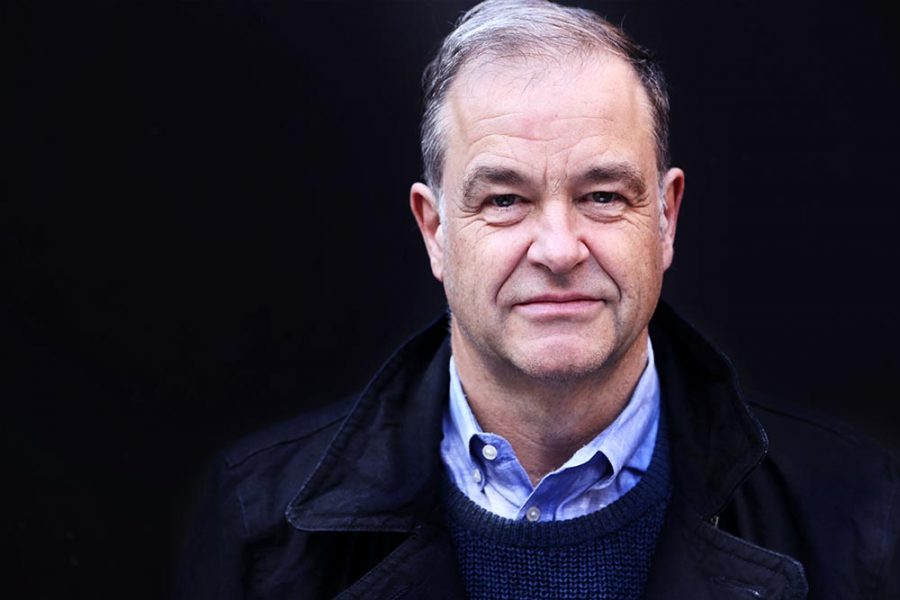In Conversation with Kimiko Ishizaka

July 2015
Words by
Emer Nestor
Photos by
Frances Marshall
As a distinguished, and highly respected, Head of the Keyboard Faculty at the Royal Irish Academy of Music, Professor Réamonn Keary is a leader in the field of piano pedagogy. His expertise on teaching and interpretation has led to many successful broadcasting collaborations with lyric fm.
Keary is a much sought-after chamber musician, accompanist, and lecturer on pedagogy. He served as the Chairman of the Senior Examiners at the RIAM for seven years, and was a member of the Cultural Relations Committee of the Department of Foreign Affairs. Keary is in constant demand as an adjudicator, and was a jury member of the Dublin International Piano Competition (formerly known as the AXA Dublin International Piano Competition) in both 2006 and 2009.
Final Note meets with Keary in the hallowed halls of the RIAM to chat about his early education, studying with Leonid Brumberg in Vienna, his teaching position, and the new DipRIAM.
I used to read through every music book I could find in the house and loved playing Scott Joplin's Rags."

Growing up in Limerick, was the Keary household a musical home?
As a child, I was always surrounded by music. Both my older sisters played piano and my father was one of those untaught musicians who, infuriatingly, could play any instrument he put his hand to. He always regretted not having had music lessons though; as a child hearing his brother and sisters being rapped over the knuckles by the local piano teacher completely turned him off taking lessons. My mother had a beautiful voice — I have lovely memories of her singing Sean Nós.
Can you remember what first drew you to the piano?
I can’t remember the precise moment, piece, or composer that drew me to the piano. I had learned the violin up to the age of 9, but was turned off by a poor teacher. I then played piano accordion for a few years, and it is an easy transition from that to the piano. I used to read through every music book I could find in the house and loved playing Scott Joplin’s Rags. Once the piano bug bit me, I did little else during my free time. I was largely self-taught until the age of 13, when I took my first piano lessons from my sister Ann. She introduced me to her teacher, the wonderful Gerard Shanahan, who taught me for four years at the Limerick School of Music until I moved to Dublin.
During the teenage years, did any particular pianists inspire you?
Growing up in Limerick I was so lucky that John Ruddock of the Limerick Music Association brought such amazing musicians to the city. I saw Ashkenazy, Alexeev, Ranki, Vasary, O’Conor, Martin, and O’Rourke perform, and it is always so inspiring to witness such fabulous musicians playing live. In fact, had it not been for these LMA concerts, I would never have made the contact with my future teacher, John O’Conor; I turned pages for him when he performed with the great violinist, Ernst Kovacic. Backstage, I twisted John’s arm into hearing me play! But from looking at my old LPs, I appear to have been most inspired by Ashkenazy during my teen years.
Was the music degree programme in Trinity College, Dublin what you expected, and why did you decide to study there?
Well…in the first place I actually chose Electronic Engineering in the University of Limerick (then NIHE). I didn’t last long there though, and applied to TCD to study physics for the following year. At an interview Professor Brian Boydell convinced me to change to Music with Maths, but then during my first term in Trinity I transferred to single honour Music. So it was a slow transition from my love for science to that of music. I really enjoyed Trinity (perhaps too much!) and, despite the course there being very academic and unfriendly towards performers, it opened my ears to a much wider world of music, and I gained insight into how great music is constructed. Why did I choose TCD? Well my sister Ann was already a student there and hearing her talk about it whetted my appetite!
How did you initially cope with the challenges of studying piano at such an intense level with John O’Conor at the RIAM?
I lapped it up — I couldn’t find enough hours in the day to practise to be ready for the next lesson! He is such an inspiring teacher and I was so lucky to have studied with him before his international career really took off. I remember once having a three-hour lesson on the Beethoven Eroica Variations, I floated out of the lesson. His lessons are very demanding, but he challenges you to get the most from yourself, and the objective is always to get to the heart of the music.
Was winning the Austrian Government Scholarship a game changer for you?
Absolutely, it made it financially possible for me to move to Vienna to study with Leonid Brumberg, and to be immersed in all the wonderful music that city has to offer. Ireland in the 1980s was quite a depressed place, and I was very fortunate to have had the opportunity to get away for two and a half years, and devote myself to studying the piano.
What did you take from your lessons with Leonid Brumberg in Vienna, and was there much fun to be had during this time?
Brumberg was a tough task-master and not every student could take his brusque manner and candid criticism — there was a high attrition rate! But he was an amazing virtuoso, and had a lot to offer as a teacher. Coming from the great Russian piano-playing tradition, his approach was very different to John’s. But this is why it’s so valuable to study with different teachers — you learn a variety of techniques, styles and practise methods, then through experimentation you can pick and choose which ones fit you best.
Vienna is a fabulous city with an incredibly rich musical culture and history. I was so lucky that my apartment was only a 10-minute-walk from the Musikverein, where the Vienna Philharmonic performed its Sunday morning concerts, and 15 minutes from the Staatsoper, where I saw many fine operas — all for only 50p a pop, in old money (you had to stand throughout the performances but that didn’t matter!). Did I have fun there? Most definitely, it’s where I met my future wife!

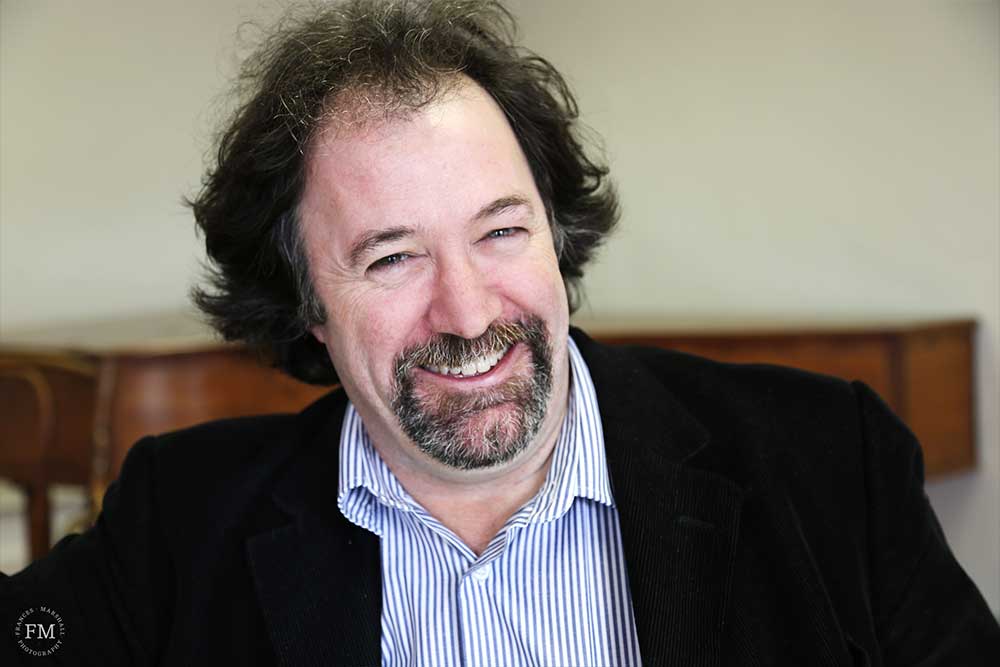


I realised early on that I was never going to be a concert pianist. The lonely life it entails (airport to hotel to concert hall to hotel to airport, etc...) didn't attract me."

Why did you decide to follow the pedagogical route over that of the touring concert pianist?
I realised early on that I was never going to be a concert pianist. The lonely life it entails (airport to hotel to concert hall to hotel to airport, etc…) didn’t attract me. I had neither the self-sacrificing tenacity it takes, nor the burning competitive streak, to constantly work up solo repertoire to the required level. I’m much more at home as a chamber musician and duo player.
As a highly regarded chamber musician and pianist, where does your heart lie in terms of repertoire?
I suppose I am most comfortable in the romantic repertoire…I’ve played a lot of Brahms over the years for example. But there are so many wonderful works by Mozart, Beethoven, Fauré and Shostakovich, and so on. I find it very difficult to narrow myself down to any one genre of music — I’m greedy!
Having also recorded the first volume of Bach’s ‘Well-Tempered Clavier’ and provided your own ending to the ‘Art of Fugue’, what attracts you to the music of this composer?
Almost thirty years ago, Niall O’Loughlin, Michael Seaver, and I agreed, late one evening in a pub, to form a clarinet trio and simultaneously we stumbled upon the works of Gabor Haenjo…so we had no difficulty in finding a name for the ensemble. We’re still working our way through the great man’s oeuvre, as well as the standard clarinet trio repertoire. It’s fun! We enjoy performing together, and rehearsals are often taken up with more laughter than playing!
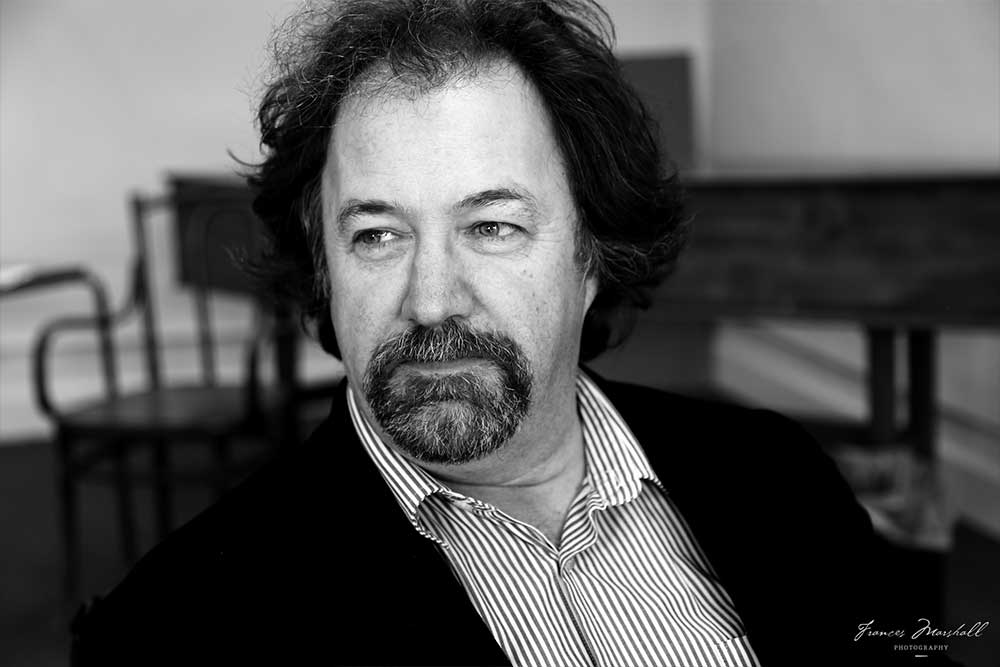


How has your philosophy of teaching evolved since you first joined the teaching faculty at the RIAM?
I’m not certain if my philosophy has changed that much at all, or perhaps the change has been so gradual over all those years that I haven’t noticed it. I am of course far more experienced now than when I started out, and I am still learning from observing what works and doesn’t work. I always think the best teachers are those who are constantly searching for better and better ways to impart their knowledge and experience.
Perhaps I now put even more emphasis on the importance of rhythm and listening. Rhythm and pulse make up the spine of music; if these are weak then it is almost impossible to play a piece successfully. It’s amazing how many pianists don’t listen — they are often so busy making sure that they are playing the right notes in the right order that they don’t listen to the quality of their sound, or the shape of their phrasing. I hope that my teaching helps improve these qualities in my students. I also think that one must never lose the element of fun in learning a musical instrument: this is one of the reasons why I love teaching children.
Have you found a commonality between the performance aspects of both disciplines—music and sport?
I am so lucky with the bunch of students I have, they work hard and are fun to teach. Also, I teach a wide variety of age groups and levels, which is very refreshing. Curiously, I don’t get the biggest kick out of students who win competitions, or score top marks in exams. I am far more motivated to hear a student turn a phrase beautifully after we have struggled with it for a while, or a student who, for example, may have been playing mechanically for weeks and suddenly during a lesson starts to create magic; it’s these light-bulb moments that motivate me most.
When faced with talented students who just don’t have what it takes to be a concert pianist or a professional accompanist, is it best practice to advise them of your concerns, or let them discover their own path?
It depends on how old they are and at what stage they are in their development. I have been surprised in the past how, for example, a pianist in their late teens can suddenly find a new lease of musical life and just take off! Look at Lucas Debargue who just gave them all a shock at the Tchaikovsky International Piano Competition, he only took up playing piano seriously at the age of 20. I would be encouraging to all my students regarding career advice. However, I wouldn’t give them false hopes, and would be realistic and pragmatic. Ultimately, I think we all find our own career paths, often despite the best advice. By the way, there are far more potential careers for a pianist other than that of soloist or accompanist; there’s chor-repetiteur work, chamber music and, of course, teacher! Also, you’d be surprised where some very fine piano students have ended up; television producers, conductors, PR managers, conservatoire directors, competition directors, and even a chief executive of one of the world’s largest arts management companies — Donagh Collins!
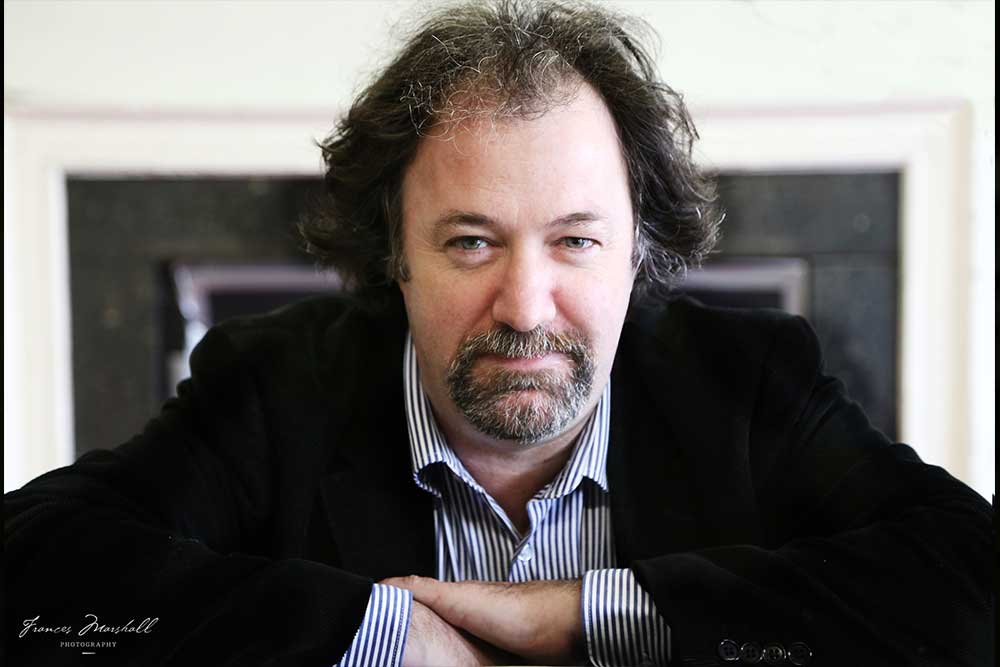

What inspired the now hugely successful ‘Piano Keys’ podcasts, and how have teachers reacted to them?
I was inspired initially by the teaching workshops that John O’Conor gives in the Academy every September. They are so popular, and yet there are hundreds of teachers and students from around the country who can’t attend, and are missing out on all the useful performance and teaching tips that John gives. I had already been producing the CDs of the RIAM Local Centre pieces for a number of years before lyric fm invited me to do the broadcasts, and it seemed a natural progression. At first I recorded the podcasts with Sean Rocks, then Niall Carroll, and now I do them with the brilliant Liz Nolan who is great craic to work with. We give the producer, poor Gail Henry, a tough time with all the laughter and wise cracks that she later has to edit out of the audio!
Do you enjoy broadcasting, and have you any designs to pursue further projects in this area?
Yes, I do enjoy broadcasting, but only when I’m talking about subjects I’m confident with. In the past, I’ve done some CD reviews and even commentary on the Dublin International Piano Competition when it used to be broadcast on television, but other than ‘Piano Keys’ there are no future projects.
As a distinguished examiner and adjudicator, what advice would you give to young pianists who are preparing for Associate and Licentiate Diplomas in teaching and performance?
Practise, practise, practise, and don’t ignore any section of the exam, particularly in the teaching diplomas. Many candidates put most of their energies into learning the pieces, and not enough into preparing for the viva voce on teaching. While there are many worthwhile books on how best to teach the piano (and I would advise candidates to do plenty of such reading), it’s only when you have a real live pupil in front of you, and you have to formulate the right words to fix a particular problem or explain a certain concept, that you start to really develop as a teacher. So, I would definitely encourage candidates to gain some teaching experience (even if it is just deputising for another teacher for a few hours) before attempting a diploma. Also, candidates tend not to spend enough time researching the repertoire at the various levels of difficulty.
Tell us about the new DipRIAM, and why the need for such a course arose?
There are three main reasons that spurred me into establishing this diploma. The first is that there are many fine music teachers around the country who have garnered great teaching experience and expertise over the years, and yet many of them will have no formal qualification other than perhaps having passed a senior grade exam. Many of these teachers would run a mile if now asked to play for an examiner, so this new diploma puts far more emphasis on teaching skills than playing skills. The second reason is that there is too big a gap between the standard of playing required at Grade Eight and Senior Certificate, and the standard required at ARIAM level. And the third is that the Academy needs to educate and be far more open in what it expects from the teaching component of our diplomas, so lots of learning supports for the DipRIAM will be provided through the Academy’s ‘Teaching Network’, which has a strong online presence. I have to say that, although I have long seen the need for this diploma, it is only when Gráinne Deery, our resident expert on all matters pedagogic, came on board, that the DipRIAM finally started to take shape.
How will you be spending the summer months away from the RIAM?
A lot of the summer will be spent preparing for the ‘Key Skills’ workshops that I give with Anthony Byrne each September. But I will get away. I’m going to drive to Berlin, and enjoy many wonderful sights and tastes along the way!
All images displayed in this article are subject to copyright.
Share this article


